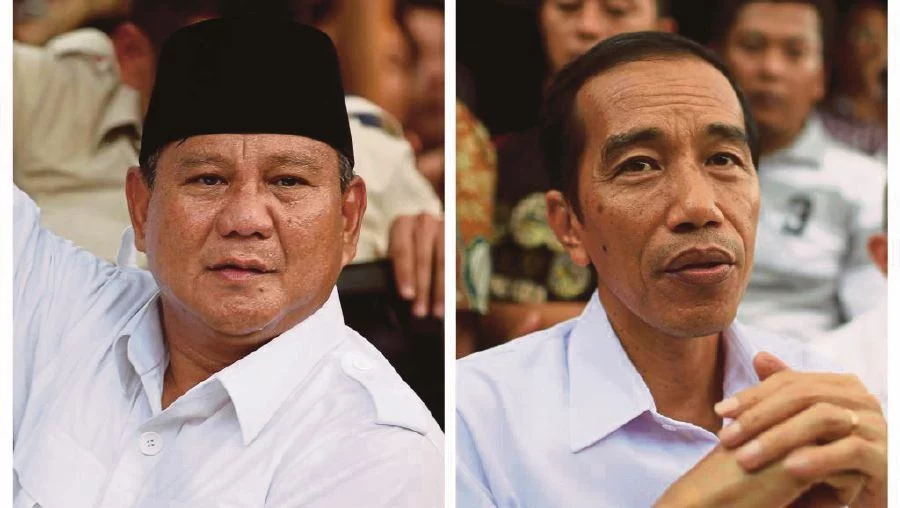IN Michael Vatikiotis’ book Blood and Silk, Javanese dewaraja (divine kings) are described to have derived their legitimacy not only from their possession of charismatic aura but also their kesaktian(mystical powers) to bring prosperity to the rakyat and repel any calamity.
No one shows the fervour to personify dewaraja as much as Prabowo Subianto in Indonesia’s recent political stage. The campaign trail of the 2014 Presidential Election bore witness to this.
Prabowo once demonstrated his virility by riding a horse in front of thousands of sympathisers. He often delivered fiery speeches that portrayed him as the saviour of the country’s many problems. He also liked to defend the rights of the poor and openly defied the interest of foreign nations.
Unfortunately for him, his portrayal of him as a powerful being has made more than a few squirm in their sleep. Critics often refer to the bleak shadow of Soeharto that Prabowo emits through his strongman persona and criticism against liberal democracy. His anti-imperialist stance is often highlighted not only for his paradoxical reproach of capitalist economic system, but also for its throwback to Soekarno’s nationalist agenda, a manifestation of which was the Konfrontasi in the ’60s.
Furthermore, his supposed kidnapping of activists in the 1997/1998 turbulent period, 13 of whom are still missing, is still rehashed as his dirty laundry as the leader of the military’s special forces.
Despite such legitimate concerns, Prabowo still managed to bag as much as 46.85 per cent of the total votes in the election four years ago. He very nearly clinched victory over President-elect Joko-wi. Assuming that voters’ rationality was a significant variable, this shows that almost half of Indonesian voters were oblivious to or willing to overlook the questionable principles and morality of the former lieutenant general.
Attacks against his character have so far failed to completely dissuade voters from abandoning his camp. A recent survey by LSI Denny JA indicates that the Prabowo-Sandiaga Uno pair scores 29.5 per cent in terms of electability in the run up to the next presidential election. That is almost one third of those surveyed eight months before the poll opens in April. Indeed, Prabowo’s unfaltering gravitas stems from his strongman persona and his romanticised populist-nationalist agenda to realise Indonesia’s dream of greatness. To some people these are convincing enough. However, reliance on his personal qualities has also failed him, as evidenced by repeated failures in the last two elections.
Considering his near victory last time, this may suggest that what it takes for Prabowo to win next time would be a slight revision to his approach in order to grab those outside his traditional pool of voters.
President Jokowi might have inadvertently assisted him in this regard. A portion of Indonesian society has grown disillusioned towards him due to several reasons. These ranges from his authoritarian tendencies, as demonstrated in the passing of anti-democratic laws and the clampdown against the #2019GantiPresiden (#2019ChangePresident) political assemblies, to his supposed inability to deal with politicised economic issues such as the weakening rupiah, the inflow of illegal foreign labours and the country’s monumental debt.
Furthermore, Jokowi also perpetuates the unfortunate phenomenon of identity politics by picking Ma’ruf Amin, a senior cleric with a colourful past, as his running mate.
These and other similar stumbles by Jokowi could have pushed some of his supporters to the swing category, leaving them open for Prabowo. Engaging these disillusioned voters would require more than just Prabowo’s conventional strategy of playing the strongman card, as they pay high regards to a candidate’s ideals and track record.
This necessitates Prabowo to modify his approach in several aspects. Firstly, Prabowo would be compelled to balance his charismatic pull with a display of kesaktian in his campaign, especially in response to current economic issues. This may be done by toning down his firebrand style and vigorously incorporating programmatic, policy-based narratives.
This will be tricky as Prabowo has no track record of holding a government office. Prabowo’s economic nationalism also still needs to be translated into concrete policy options to convince potential voters that he has, at his disposal, technical expertise to resolve their woes.
By showcasing realistic solutions to problems of the day, however, Prabowo may just be able to gain footing among voters who lost faith in Jokowi’s kesaktian.
Secondly, and this is more controversial, Prabowo must accept that the record on his past abuse of human rights cannot be eliminated. Instead of overturning the narrative by bizarrely claiming to be the defender of human rights, as he did in 2014, Prabowo should show genuine regret and determination to reform himself. Voters need to be convinced that a President Prabowo would not resort to similar atrocities once given the mandate. This would involve abandoning his elitist, above-all personality and embracing the humility of the common people. More importantly, Prabowo needs to acknowledge that he is not a divine being who can rewrite and manipulate rules or get away with wrongdoings. After all, Indonesian voters may be able to relate more with a reformed, humble candidate.
Alas, at 66, Prabowo might struggle to change his worldview and ego. Even if he is willing to change, followers and funders tied to his patronage would still need Prabowo to be a supreme leader from where power and cash flow. As the 2019 Presidential Election looms in the horizon, Prabowo must realise that his approach to power needs a correction. Power projection, jingoism and demagoguery can only get him so far and do not testify to his kesaktian to resolve the concerns of the rakyat.
It is about time that he presents himself as a presidential candidate, a statesman with a knack of bringing prosperity to the nation, instead of a power-hungry relic from Soeharto’s era. If he could achieve that, he might even the get blessings of the dewaraja of old.
This article first appeared in the New Straits Times on September 12, 2018.




